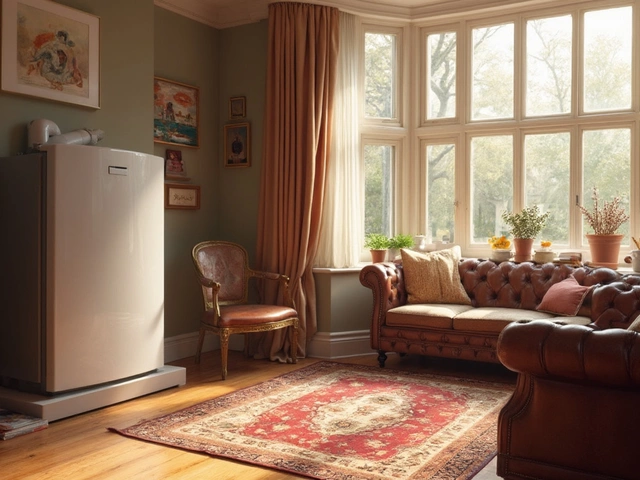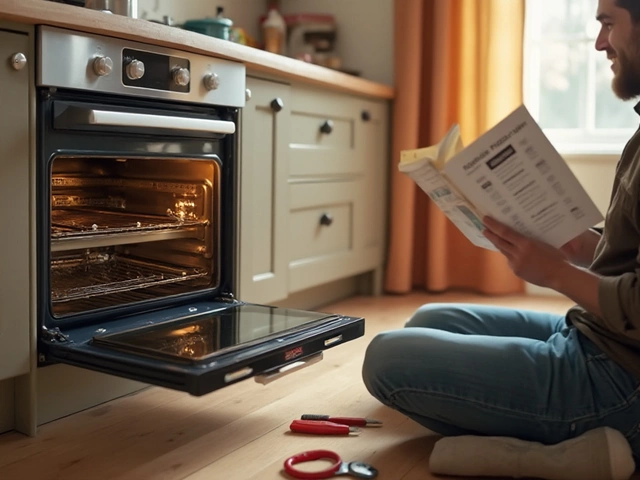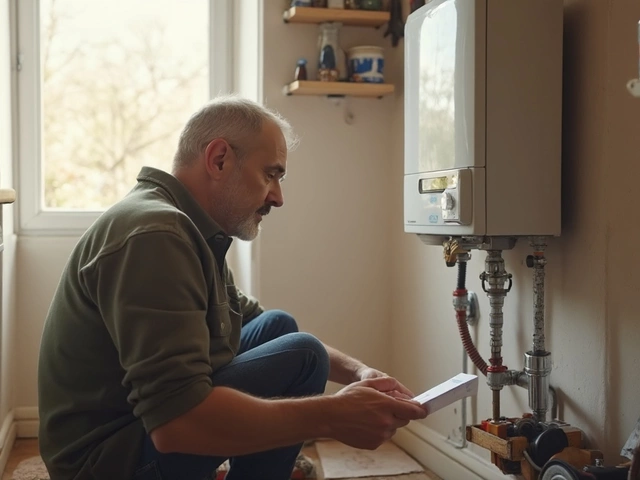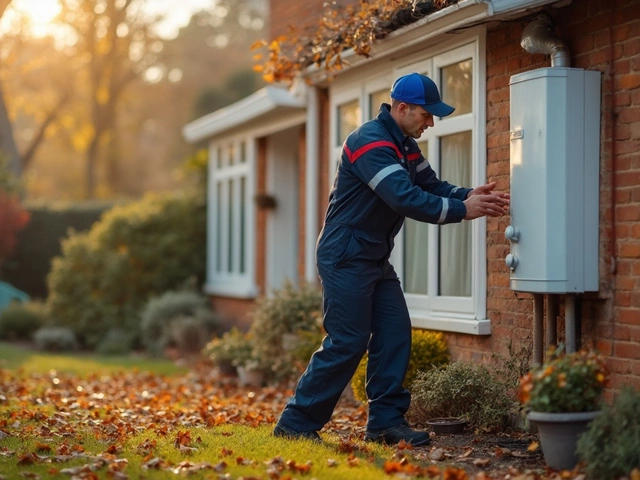Stoves are the workhorse of most kitchens, but most of us never ask how long they’ll stick around. Knowing the usual lifespan helps you plan repairs, budget for replacement, and keep meals cooking without surprise breakdowns.
A typical electric stove lasts between 13 and 15 years, while gas models often push to 15‑20 years. Those numbers aren’t set in stone – the exact life depends on how you use it, how well you maintain it, and the quality of the original build.
Heat cycles are the biggest culprits. Every time you turn a burner on, the element expands, then contracts when it cools. Over time that stress can cause cracks, loose connections, or burnt‑out coils. For gas burners, the igniter and valve seals are the parts that give up first.
Other factors include spills that aren’t cleaned promptly, rough handling of the glass top, and power surges that fry the control board. Even the ventilation in your kitchen plays a role – excess moisture or grease can corrode internal components.
1. Uneven heating. If one side of a burner stays cooler, the element might be failing.
2. Clicks that never spark. A weak or dead igniter is a sign the gas side is on its way out.
3. Control panel glitches. Unresponsive knobs or flickering displays often point to a bad control board.
4. Visible damage. Cracks in the glass top or rust on the frame are red flags.
Spotting these early lets you fix the problem before the whole stove quits.
Keep the surface clean. Wipe up spills as soon as the stove cools – sugar, oil, and salt can eat into the glass or metal.
Use the right cookware. Heavy cast iron can scratch glass tops, while warped pans cause uneven heat distribution that stresses elements.
Don’t overload burners. Running multiple high‑heat pots on one element forces it to work harder and shortens its lifespan.
Schedule a yearly check‑up with a qualified technician. A quick inspection of the wiring, igniter, and burner seals can catch wear before it becomes a costly failure.
Consider a surge protector for your kitchen appliances. It’s an inexpensive way to shield the stove’s electronics from voltage spikes.
Finally, give the appliance a break. If you’re not using a burner, turn it off completely rather than leaving it on low for hours.
If a single element or igniter fails, repair is usually cheap – often under £100. However, if more than two major components need replacement, the cost can climb quickly. Compare the repair quote to the price of a new stove. When repair costs exceed 50% of a new unit, replacement makes more sense.
Also weigh energy efficiency. Modern stoves use less power and heat more evenly, which can lower your bills. A new, efficient model might pay for itself in a few years.Bottom line: regular care, quick spotting of issues, and timely professional checks can push a stove well past the average 15‑year mark. Keep an eye on the signs, act fast, and you’ll get many more years of reliable cooking.

Electric stoves are a staple in many kitchens, but how long can you expect them to last? This article delves into the average lifespan of an electric stove and what factors can influence its longevity. Discover maintenance tips that can help extend its life and recognize signs when repairs or replacements might be necessary. This guide aims to empower you with insights into prolonging the efficiency of your kitchen's electric stove.

Curious about how much a new boiler might set you back? This article breaks down the costs involved, from purchasing the unit to installation fees. Understand the factors that influence pricing and learn practical tips to get the most value from your investment. Discover essential maintenance advice and the importance of proper sizing and efficiency ratings. Equip yourself with knowledge before making a decision about your home's heating system.

If your electric oven isn't heating properly, it might be time to replace the heating element. Understanding the costs and what's involved in the repair process can help you make informed decisions. This article dives into the factors affecting replacement costs, step-by-step guidance on how to change the element, and practical tips to ensure your oven runs smoothly. With these insights, you can tackle the repair yourself or hire the right professional for the job.

Thinking about handling your own boiler service? Get the truth about what you can and can’t do, why safety matters, and which tasks are okay for homeowners. This article covers legal restrictions, common mistakes to avoid, and practical tips for everyday boiler care. Learn how to spot problems early and when it's really time to call a pro. Save yourself headaches, money, and maybe even a major disaster by knowing the facts.

Experiencing no hot water in the shower can be frustrating, especially on cold mornings. This article provides practical solutions to diagnose and resolve common issues with your water heating system. From checking simple things like the thermostat to identifying more complex issues like a faulty heating element, you'll learn how to get back to enjoying a warm shower.

Replacing a boiler can seem like a daunting task, but knowing what to expect can make the process easier. Typically, boiler replacement involves several steps including removing the old unit, choosing the right size and type for your home, and ensuring proper installation. Skilled professionals often make the experience smoother by handling the technical aspects and minimizing disruption. Preparation and understanding of the process can help homeowners tackle this job with confidence.